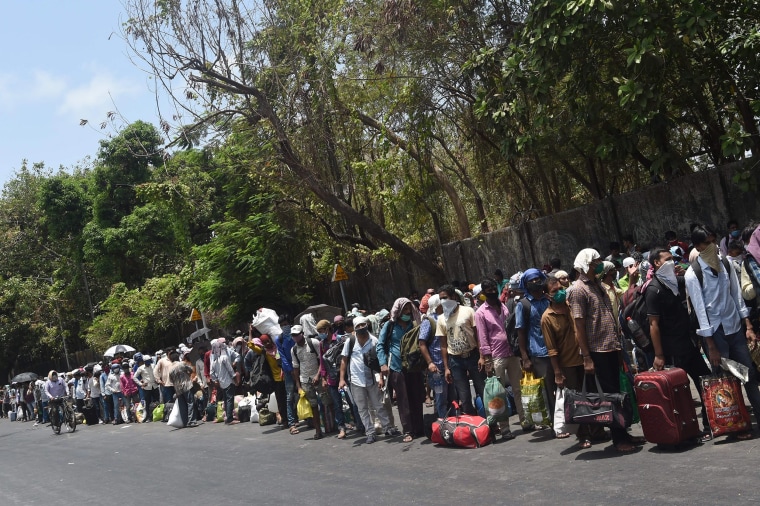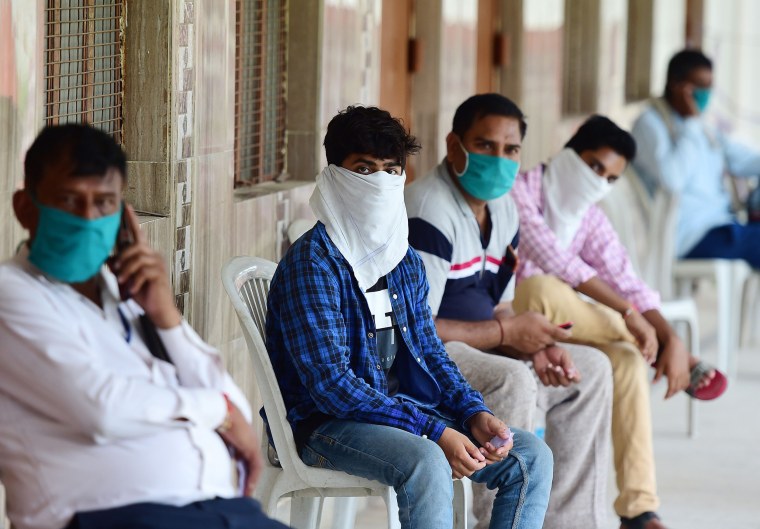NEW DELHI — India hit a grim milestone in the coronavirus pandemic on Friday, crossing 2 million cases, as community health volunteers went on strike, complaining they were ill-equipped to respond to the wave of infections in rural areas.
Even as India, the world's second-most populous country, has maintained comparatively low mortality rates, the disease trajectory varies widely across the country, with the burden shifting from cities to rural areas, where healthcare resources are scarce.
The Health Ministry reported 62,538 cases in the past 24 hours, raising the nation's total to 2,027,074 — with more than 41,000 people dead due to COVID-19 so far.
India has the third-highest coronavirus case load in the world after the United States and Brazil, according to Johns Hopkins University data.
Cases in India have quickly risen since the government began lifting a social lockdown, hoping to jump-start a moribund economy. India is projecting negative economic growth in 2020.
Although life has cautiously begun to return to the streets of the capital, New Delhi, and financial hub Mumbai, which appear to have passed their peaks, authorities elsewhere in India were reimposing lockdowns after sharp spikes in cases. Including in Uttar Pradesh, a state of 220 million where infections in every district are weighing heavily on the fragile health system.
After fully reopening in June, the state reimposed a weekend lockdown in July.
Shachindra Sharma, a 60-year-old graphic designer in the state capital, Lucknow, only leaves his house for a weekly grocery shop.
"I do not fear the disease but I do fear the government system, which has crumbled," he said.
Download the NBC News app for breaking news and politics
Around 900,000 members of an all-female community health force began a two-day strike on Friday, protesting that they were being roped in to help with contact tracing and in quarantine centers, but weren't given adequate personal protective equipment or additional pay, according to organizer A.R. Sindhu.
The health workers, known as Accredited Social Health Activists, or ASHA, which means "hope" in several Indian languages, have been deployed in villages on behalf of the Health Ministry.
"ASHA workers don't have masks or PPEs or even sanitizers," said Sindhu.
Manisha Verma, a spokesperson for the Health Ministry, did not immediately respond to a request for comment.

India has launched two of the world's dozen and a half prospective vaccines into human trials, with vaccine-maker Zydus Cadila announcing it had completed phase 1 trials of its DNA-based vaccine on Thursday.
The country will be vital to global vaccination efforts, regardless of whether its own attempts work.
The world's largest vaccine maker, the Serum Institute in the central Indian city of Pune, has ramped up capacity to manufacture as many as a billion doses in development by AstraZeneca and the University of Oxford — where researchers are hoping to launch a vaccine for emergency use by October.
